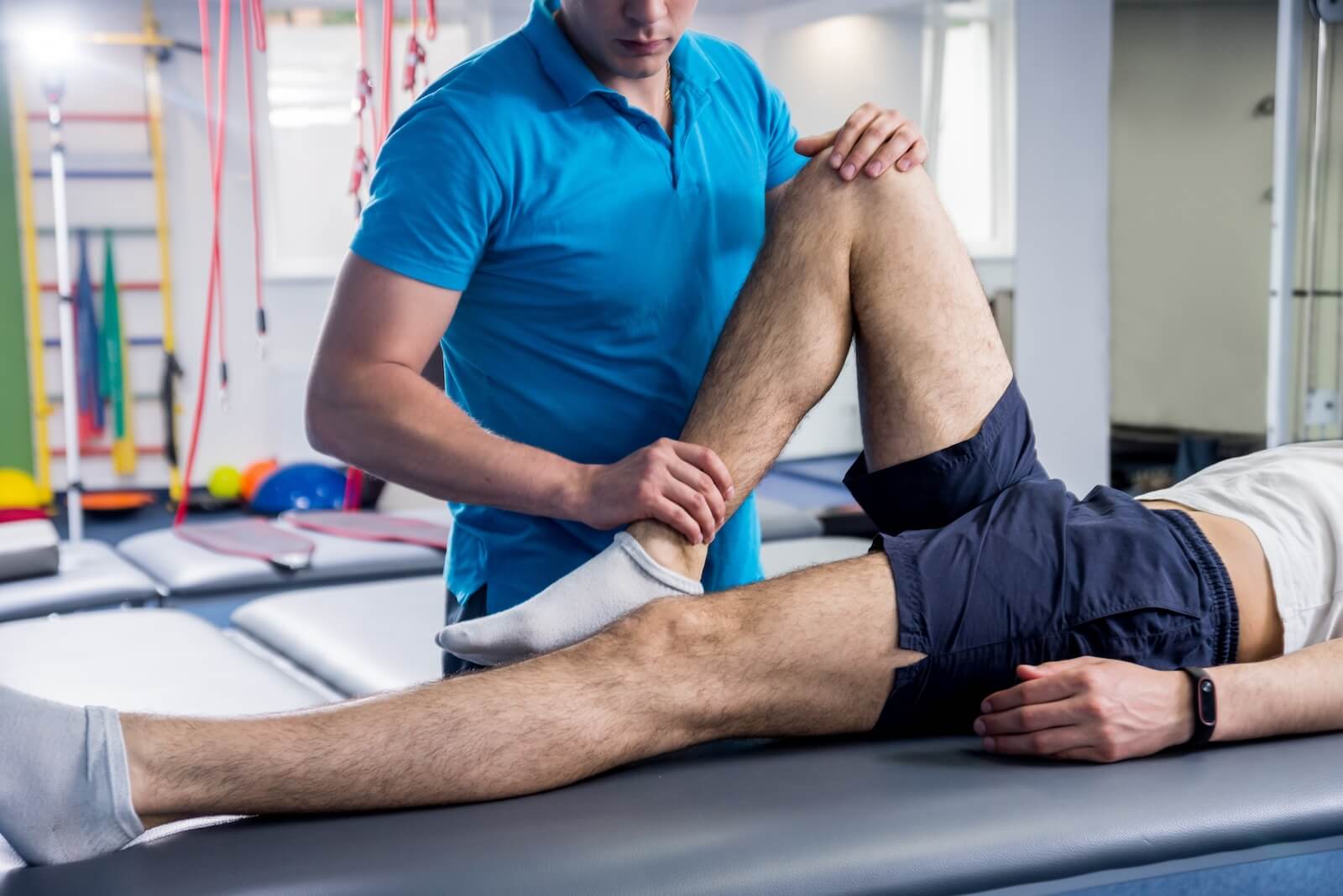As the Paris 2024 Summer Olympics showcase some of the world’s elite athletes, all eyes are on those who pushed their bodies to extraordinary limits and gave it their all in competitive sport. According to Olympic reports, over a dozen star athletes will miss this year’s Olympics, many of the reasons being unresolved injuries. While the gold medals and records continue to make headlines in the media, nobody really talks about the recovery journey that athletes go on to achieve peak performance. With the help of healthcare professionals and physical therapists, athletes can achieve their goals through injury prevention, post-competition recovery, and performance optimization.
Physical therapy plays a crucial role in Olympic athletes’ recovery and maintenance process. As a specialized form of healthcare, athletes and their therapists focus on restoring movement, function, and overall well-being. By addressing any underlying causes of pain at its earliest stages, physical therapists can help athletes regain their strength, flexibility, and endurance to return to their sport at the highest possible level.
Common Olympic Injuries
Peak athleticism was on full display at this year’s Olympics as the world witnessed multiple displays of strength, speed, and skill. However, not many can see the aftereffects of competition. Several types of injuries frequently plague athletes before, during, and after they compete, often requiring the help of physical therapists. Some of the most common Olympic injuries seen this year are:
Musculoskeletal Injuries: Musculoskeletal injuries are the most common type of Olympic injury and affect athletes’ muscles, tendons, ligaments, and bones. Sprains, strains, tears, and fractures can range in severity. However, extreme cases can sometimes require surgery or cause athletes to quit training or participate entirely. Due to their highly repetitive and high-impact nature, gymnastics, track and field, and swimming are often the riskiest for musculoskeletal injuries.
Overuse Injuries: Sports with repetitive motions, such as running, gymnastics, or soccer, can put excessive stress on the body. As a result, many athletes can face overuse injuries such as tendinitis, stress fractures, and shin splints. Without proper form and ample recovery, many of these injuries can become severe and require surgery.
Concussions: Contact sports such as rugby, boxing, and soccer can put athletes at a very high risk of concussions. These brain injuries can significantly impact athletes and cause headaches, dizziness, and cognitive difficulties.
The Role of Physical Therapy in Athletic Recovery
Injury poses a significant risk to even the most elite athletes, so physical therapy remains an essential part of the athletic journey. If an athlete sustains an injury, physical therapists are prepared to offer suggestions and develop a strategy for recovery. The recovery process typically involves several phases:
Evaluation and Assessment: Physical therapists will thoroughly assess the injury and determine its extent. By evaluating and performing a series of tests, physical therapists can develop a personalized treatment plan and decide whether the injury can be treated instantly with therapeutic methods or if surgery is required first.
Restoring Range of Motion: If the injury is cleared for rehabilitation, physical therapists will start with restoring the range of motion through stretching exercises and manual therapy techniques. These exercises and techniques prevent stiffness and adhesions, which hinder recovery and prevent optimal movement required for other therapies.
Strengthening and Conditioning: Once pain and inflammation subside and the range of motion is restored, physical therapists will rebuild the athlete’s strength and endurance. Resistance and plyometric exercises are often utilized so that athletes can prepare to return to their sport’s physical demands.
Functional Training: Certain skills are required for each individual sport, and physical therapists help athletes regain the specific skills and movements for their sport. Drills and exercises may be incorporated, such as kicking or shuffling drills for soccer players or torso and shoulder rotation drills for swimmers and boxers.
Return to Sport: As athletes progress in their physical therapy treatment plans, physical therapists work closely to ease them into their sport gradually. By monitoring and modifying treatment and activities, physical therapists can support athletes in their return and suggest plans for preventing re-injury.
In addition to traditional physical therapy methods, Olympic athletes are often treated with the most advanced methods. Techniques such as dry needling are frequently used to release muscle tension and improve blood flow to injured areas, while other approaches, such as the Grastron Technique and shockwave therapy, use specialized instruments and technology to reduce pain.
Preventing Injury With Physical Therapy
While physical therapists’ role is invaluable in treating Olympic injuries, prevention is even more critical. Olympic athletes always work closely with their physical therapists to develop comprehensive injury prevention plans, including strength and conditioning, flexibility training, and proper warm-up and cool-down routines. Athletes practice physical therapy exercises daily to get their bodies in optimal shape to compete on the world stage of the Olympics.
Visiting a physical therapist at the first instance of an injury can go a long way in preventing further injury and getting expert advice for reinjury prevention. At the elite level, Olympic athletes often do not have the flexibility to take multiple weeks off to rest. Getting ahead of the injury and taking preventative measures with a physical therapist is essential to ensuring that athletes stay on schedule with their training regime.
Recover Like an Olympian with Total Physical Therapy
By understanding the common injuries that affect Olympic athletes and the role of physical therapy in recovery and training, we can appreciate the dedication and expertise required of physical therapists to get athletes to compete at optimal performance. Armed with a diverse variety of therapeutic methods and techniques, physical therapists guide athletes every step of the way along their journey to recovery.
As many of our U.S. Olympians hail out of the great state of Colorado, our expert physical therapists at Total Physical Therapy in Denver serve to get our athletes back into the sport they love. Whether you’re an elite athlete or simply leading an active lifestyle, you can count on us to get your body back to the sport you love. Call us at 303-758-5060 or schedule an appointment to take the next step toward recovery and optimal performance.




